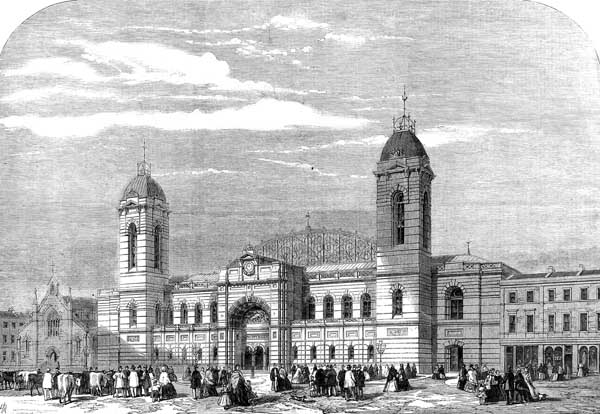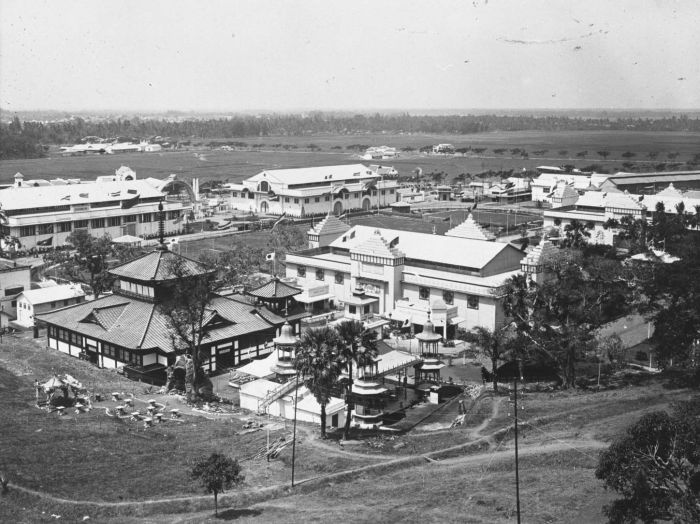Colonial Exhibitions on:
[Wikipedia]
[Google]
[Amazon]




 A colonial exhibition was a type of
A colonial exhibition was a type of  Brussels was the venue for the last colonial exhibition: the Belgian ''Foire coloniale'', held in 1948.
Brussels was the venue for the last colonial exhibition: the Belgian ''Foire coloniale'', held in 1948.

Exposition Coloniale of Paris 1931
photographs {{DEFAULTSORT:Colonial Exhibition History of colonialism World's fairs




 A colonial exhibition was a type of
A colonial exhibition was a type of international exhibition
A world's fair, also known as a universal exhibition or an expo, is a large international exhibition designed to showcase the achievements of nations. These exhibitions vary in character and are held in different parts of the world at a specif ...
that was held to boost trade. During the 1880s and beyond, colonial exhibitions had the additional aim of bolstering popular support for the various colonial empires during the New Imperialism period, which included the scramble for Africa
The Scramble for Africa, also called the Partition of Africa, or Conquest of Africa, was the invasion, annexation, division, and colonisation of Africa, colonization of most of Africa by seven Western Europe, Western European powers during a ...
.
The first colonial exhibition, in Victoria, Australia
Australia, officially the Commonwealth of Australia, is a Sovereign state, sovereign country comprising the mainland of the Australia (continent), Australian continent, the island of Tasmania, and numerous List of islands of Australia, sma ...
, in 1866, was the progeny of 25 years of similar exhibitions, also held in Melbourne, in which other colonies within the Australian continent participated.
Perhaps the most notable colonial exhibition was the 1931 Paris Colonial Exposition, which lasted six months and sold 33 million tickets. Paris's Colonial Exhibition opened on 6 May 1931 on 110 hectares (272 acres) of the Bois de Vincennes. The exhibition included dozens of temporary museums and façades representing the various colonies of the European nations, as well as several permanent buildings. Among these were the Palais de la Porte Dorée, designed by architect Albert Laprode, which then housed the Musée permanent des Colonies, and serves today as the Cité nationale de l'histoire de l'immigration.
The French Communist Party held an anti-colonial counter-exhibition near the 1931 Colonial Exhibition, titled ''The truth about the colonies''. The first section was dedicated to crimes during the colonial conquests, and quoted Albert Londres
Albert Londres (1 November 1884 – 16 May 1932) was a French journalist and writer. One of the inventors of investigative journalism, Londres not only reported news but created it, and reported it from a personal perspective. He criticized abu ...
and André Gide's criticisms of forced labour
Forced labour, or unfree labour, is any work relation, especially in modern or early modern history, in which people are employed against their will with the threat of destitution, detention, violence including death, or other forms of ex ...
. The second one contrasted the Soviet Union's "nationalities policy" with "imperialist colonialism".
Germany and Portugal also staged colonial exhibitions. Human zoos were featured in some of the exhibitions, such as in the Parisian 1931 exhibition.
The Empire of Japan hosted colonial showcases in exhibitions within the Home Islands, but also held several full-scale expositions inside its colonies of Korea and Taiwan. These exhibitions did however have objectives comparable to that of their European counterparts, in that they highlighted economic achievements and social progress under Japanese colonial rule to Japanese and colonial subjects alike.
Colonial exhibitions
Exhibitions that may be described as colonial exhibitions include the following.Notes
References
Bibliography
* Alexander C.T. Geppert, ''Fleeting Cities. Imperial Expositions in Fin-de-Siècle Europe'', Basingstoke/New York: Palgrave Macmillan, 2010.See also
* Colonialism * Human zoo * List of world's fairs * Impact of Western European colonialism and colonisationExternal links
Exposition Coloniale of Paris 1931
photographs {{DEFAULTSORT:Colonial Exhibition History of colonialism World's fairs